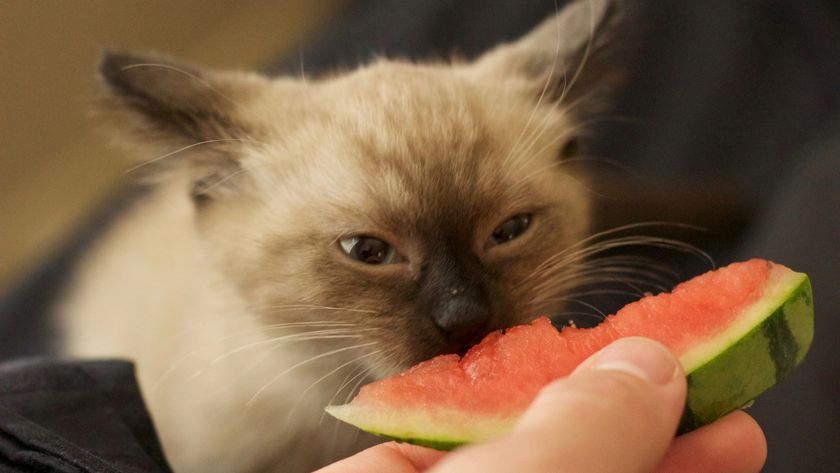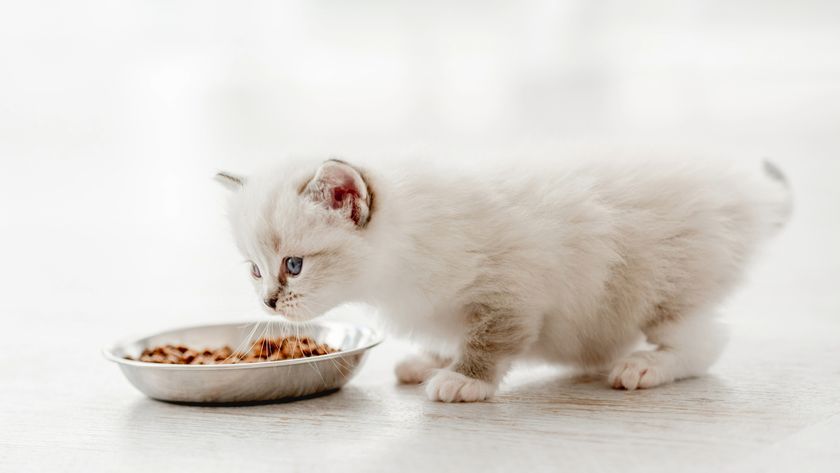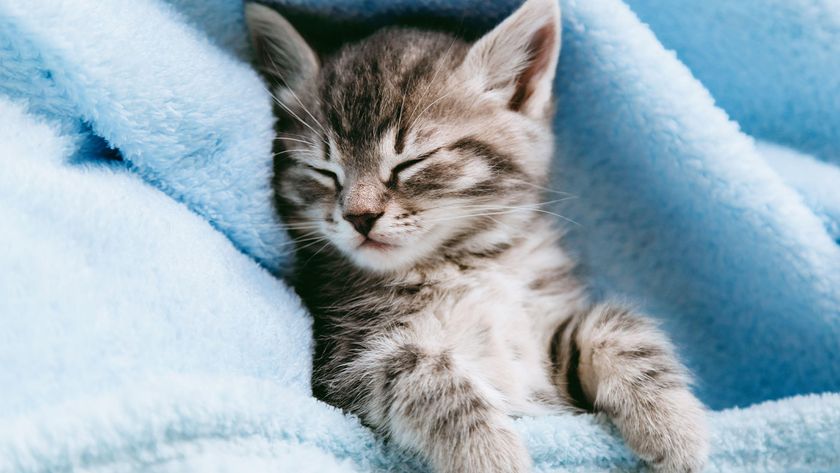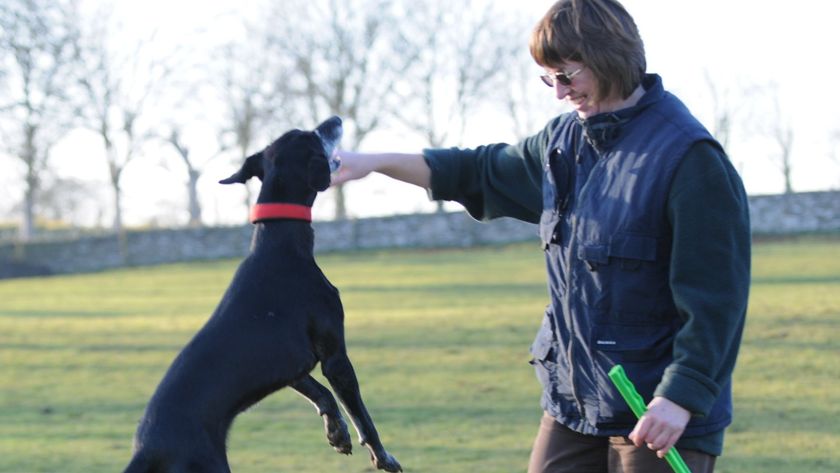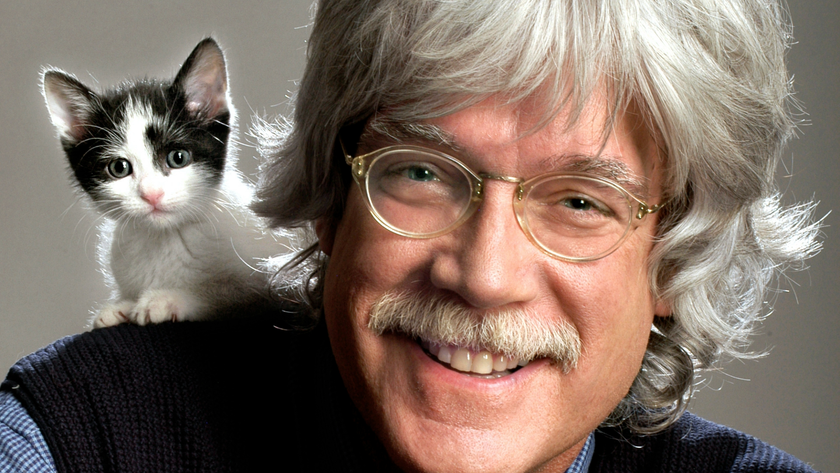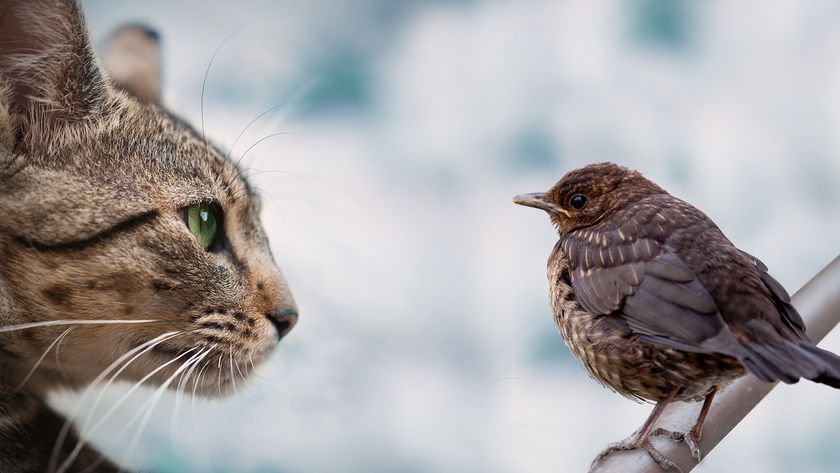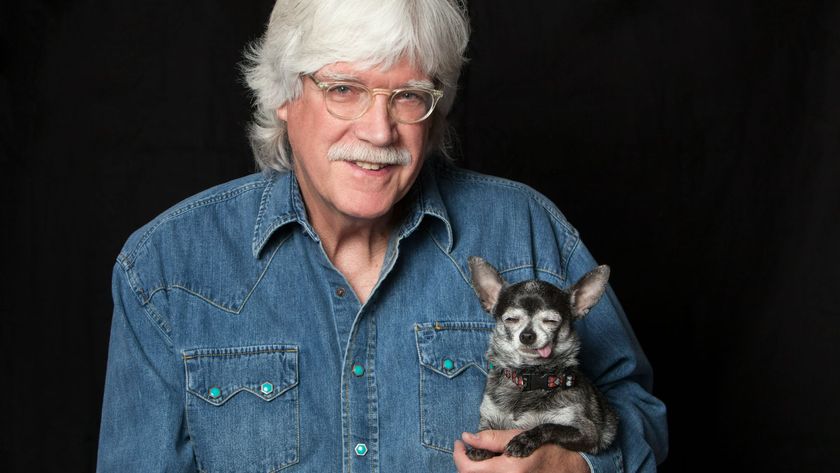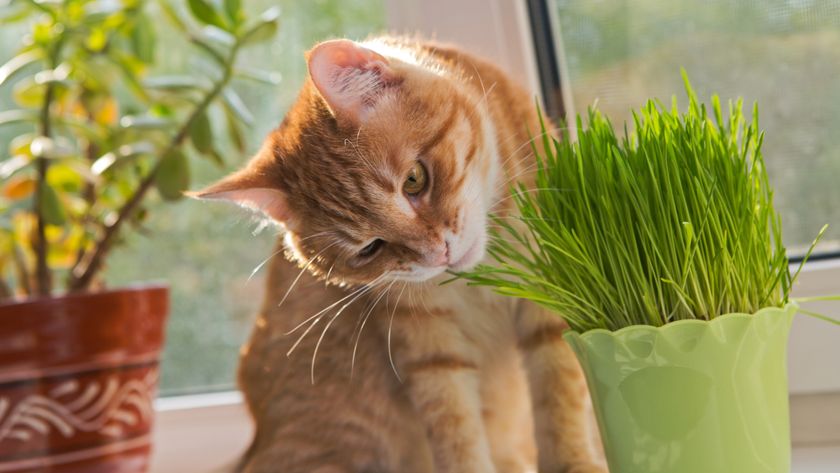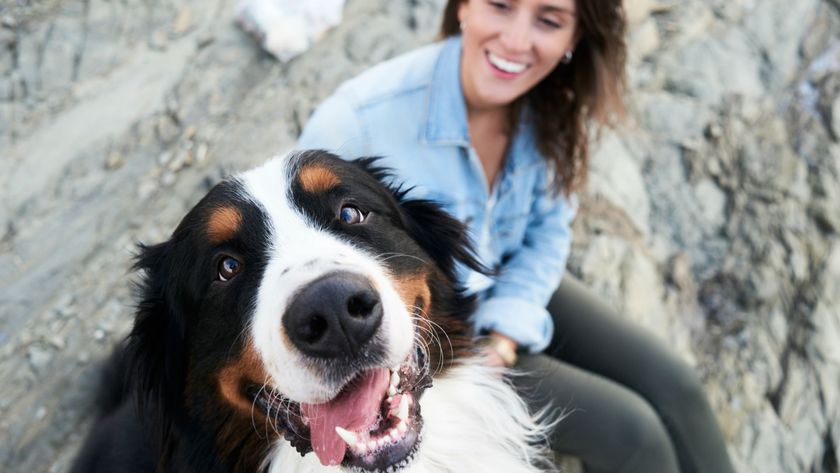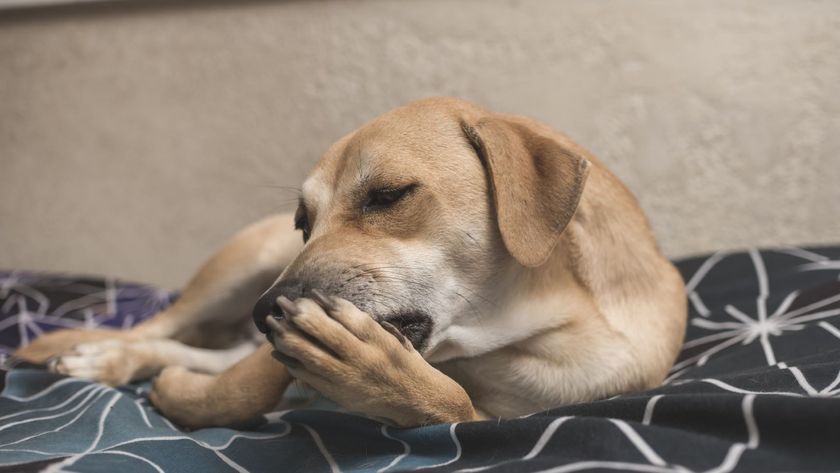How often should I feed my kitten? A vet weighs in!
Pondering the question ‘how often should I feed my kitten?’ Our vet reveals the proper portion size for your fur friend’s first year of life
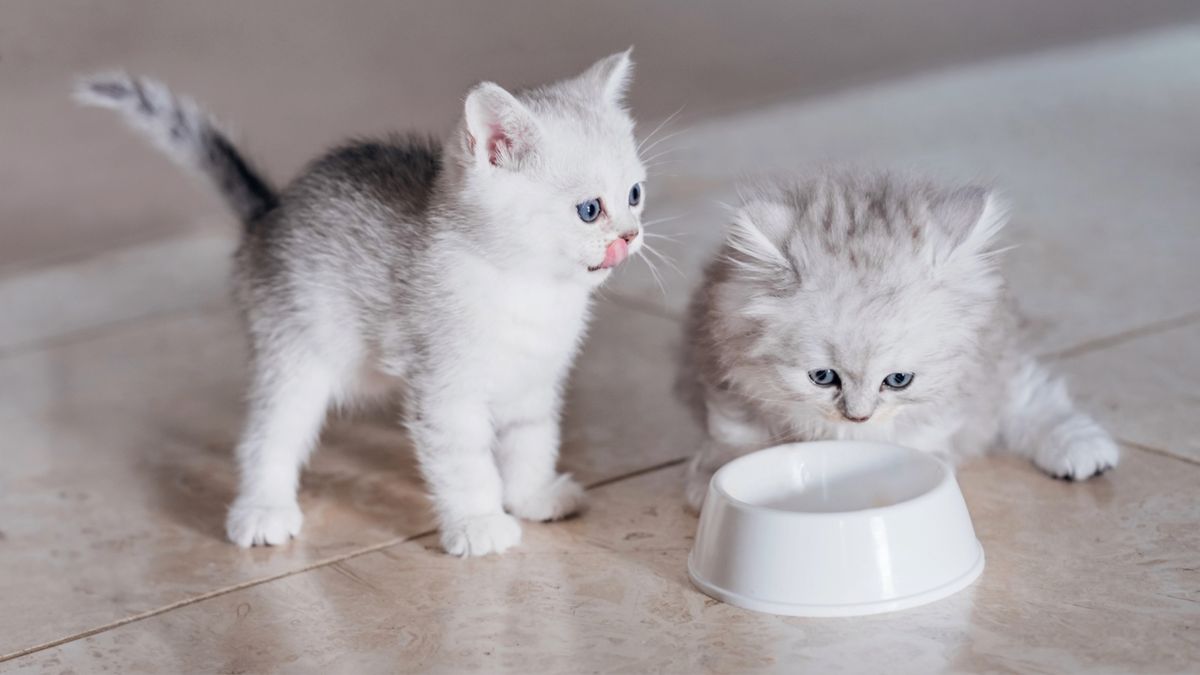
- Young kittens: Up to four weeks
- Weaning kittens: 4-8 weeks
- First days in a new home: 8-16 weeks of age
- 16 weeks to 6 months
- Six months to one year
- How much food should I feed my kitten?
- How often should I feed my kitten wet food?
- How often should I feed my kitten milk?
- How should I feed my kitten to avoid obesity?
How often should I feed my kitten is a question you may well be asking if you’ve just welcomed a new bundle of fluff into your family. And while it’s true that kitten’s have certain nutritional requirements that must be met, the portion of food will very much depend on their age, growth rate and breed.
It’s important that you stick to feeding your little one the best kitten food until they reach adulthood as unlike their older brothers and sisters, kittens have a higher need for protein, minerals and amino acids. A kitten-specific dry or wet food will have been specifically formulated to ensure it ticks all the boxes to allow your young fur friend to thrive.
When it comes to which kitten food is best, we recommend you consider which stage of kittenhood your kitten is in, how active they are, their current weight, and what their overall body condition is like. If you have any concerns that you may not be meeting their nutritional needs, your vet will be able to offer tailored advice and guidance.
Below, Dr. Joanna Woodnutt dives deep into all things related to kitten feeding, including a breakdown of exactly what your little one needs at each key developmental point in their first year of life. Let’s take a look…

Dr Joanna Woodnutt qualified as a veterinarian from the University of Nottingham where she then went on to practice companion animal medicine in the Midlands. She really took to the consulting side of things and helping clients with medical problems such as dermatology, behaviour and nutrition - anything that involved helping clients understand their pets better.
Young kittens: Up to four weeks
Newborn kittens will be getting all their nutrition from their mother’s milk. However, if you find yourself in the position of needing to hand-rear a kitten then you will need some special kitten formula milk – don’t be tempted to give them cow’s milk!
At this age, your kitten will need to be bottle-fed every 2-3 hours. You’ll also need to ensure they are toileting by stimulating them with a wet cloth if the mother cat isn’t there to do it. If you find an abandoned kitten or if your cat neglects her kittens after giving birth, it would be a good idea to get them checked over by a vet. Raising kittens is hard work, and it’s best to seek professional advice.
Weaning kittens: 4-8 weeks
At four weeks, most kittens are willing to try a little solid food. Try to find them soft, pâte-like foods at first, and consider mixing them in with a little milk to encourage them. At first, a taste is all they need – most of their nutrition will be coming from milk. But over the next 2-4 weeks, they’ll make a gradual transition to eating only solids.
At this age, it’s best to leave solid foods down for long periods in order to allow them to explore and get a taste for it. Don’t forget to refresh the bowl regularly to make sure it stays safe, as wet food goes off quickly. At four weeks, they’ll be drinking milk about four times a day, but this will decrease naturally as their solid food intake increases.
First days in a new home: 8-16 weeks of age
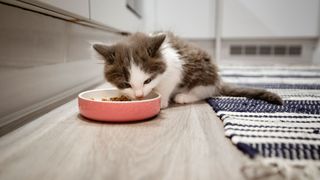
Many kittens go off to their new homes from eight weeks of age onwards. This can be an unsettling time for them, so one of the best ways to help them feel more secure is by providing a routine. This will help them know what to expect each day. Making sure your kitten has set meal times is a big part of this.
Your kitten will need around four feeds a day at this age, with their recommended daily ration split evenly between all four mealtimes. A kitten not eating very much or not eating at all requires an immediate trip to the vet so do keep an eye on your young fur friend and ensure they're getting the nutrition they need to thrive.
You should get in the habit of weighing and body condition scoring your kitten to make sure they’re getting enough food. You want them to grow and put on weight, but not to become obese Your vet will be able to advise you further on this. Something else to consider is what type of food to feed your kitten – you can choose either wet, dry, or a mixture of both. At this age your kitten won’t need milk, they will be getting all they need from their solid food. Water should always be provided though.
Whichever food you opt for, make sure that it is a diet specifically for kittens as this will be specially formulated to help with their growth and development. The packet guidelines will tell you how much to feed your kitten per 24-hour period (which can then be divided into his four daily meals). If you aren’t sure how much you should be feeding, then speak to your vet.
16 weeks to 6 months
Your kitten will likely be on three feeds a day at this age, dividing their recommended daily ration into three equal portions. They should still be on a kitten diet at this age, as they are growing rapidly. However, this is a common age for kittens to become overweight, so keep on checking in with your vet to make sure their growth is appropriate. Keep an eye on how many extra treats or titbits you are giving them, as this is also easy to overdo.
Six months to one year
Your kitten’s growth will have slowed and, although they are still growing and changing body shape, he will need far fewer calories. Whether they stay on kitten food or change to the best dry cat food or a wet option varies depending on their breed and whether they’ve been neutered – your vet can help you decide.
At this age, two feeds a day is fine, and this frequency of feeding will continue right through your cat’s adult life. Having said this, wild cats eat several smaller meals each day, so if your cat is more of a grazer then you can do this too. The most important thing is to make sure his recommended daily calories are split between the meals so that you know, no matter how often he eats the number of calories per 24 hours is still the same.
How much food should I feed my kitten?
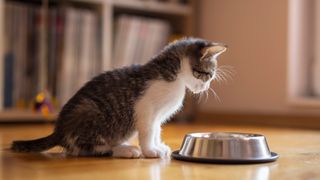
As kittens age their calorie needs change, so it can be difficult to decide exactly how much to feed them. Rather than guessing, it’s worth calculating your kitten’s energy needs.
Young, unweaned kittens need 20-25kcal for every 100g of bodyweight each day. You can use the calorie content on your kitten milk replacer label to determine how much milk you should feed your kitten. Weighing your kitten regularly can help to ensure they’re taking enough milk to grow properly.
Once your kitten has fully weaned, usually around eight weeks, he’ll need to be taking in around 250-280 calories a day. However, this can vary between breeds and individuals, so you should take your vet’s advice into account. Start by feeding the amount of food recommended on the cat food label, then adjust as necessary to make sure your kitten gains weight at the right rate.
Once your kitten reaches six months of age or is neutered, you can start to reduce their daily calorie intake to their adult requirement. On average, this is 200kcal/day, but this depends on your cat’s weight. Your vet will be able to advise, or a calorie calculator can help you.
How often should I feed my kitten wet food?
When kittens are very young and starting to wean at around four weeks of age, soft food should be available most of the time. This is so that they can explore and try little bits, as and when they like. One of our top kitten feeding tips as your kitten gets older is to also introduce them to dry food to see which your little fur friend prefers. As for when can kittens eat dry food, we advise waiting until your kitty is around six weeks of age before you start offering them kibble.
But regardless of whether you are feeding wet or dry, the recommended frequency of feeding is the same. Kittens aged 8-16 weeks will be on four meals a day, at 16 weeks to six months they will be eating three times a day and by six months of age onwards they should be on two meals per day.
How often should I feed my kitten milk?
Can kittens drink milk? It depends on their age as to how much milk your kitten needs. As discussed earlier (in the different age sections), newborn kittens will be getting all their nutrition from milk and will need to feed every 2-3 hours. This lessens as they get older and by the time they are fully weaned they shouldn’t require any milk at all. From the age of eight weeks old your kitten should only drink water.
Don’t be tempted to give cow’s milk to your kitten, even as a treat, as it could cause tummy upset.
How should I feed my kitten to avoid obesity?
Obesity is one of the biggest animal welfare concerns for vets today, and it’s estimated to affect over half of all cats. Once cats become obese, slimming them down is much harder – so preventing unhealthy weight gain, right from kittenhood, is the best bet.
Calculating the required daily allowance for a growing kitten is difficult, and feeding too little is just as dangerous as feeding too much. It’s best to talk to your veterinarian to find out how many calories your kitten needs each day, and calculate their feeding allowance, in grams, from there.
Your vet can also recommend regular weigh-ins and check your kitten’s growth against a chart to make sure they aren’t gaining more weight than is healthy for their age. For more info, read our guide to weight loss for cats.
The main thing that influences how often you should feed your kitten is his age. But size and breed can come into it too. Large breeds will have the stomach capacity to have fewer meals far younger than small breeds such as Siamese cats.
Don’t forget that all cats are individuals. If your cat appears to be losing weight, is pestering for food, or is otherwise not coping with the number of meals they get, it might be worth discussing their symptoms with a vet and seeing whether more frequent meals would help.
For more helpful advice on this topic, check out our guide to how long should cats eat kitten food for and how to tell if your kitten is overweight. Or, find out the answer to, 'can kittens eat watermelon'?'
PetsRadar Newsletter
Get the best advice, tips and top tech for your beloved Pets
After graduating as a vet from the University of Nottingham, Dr Joanna Woodnutt went on to practice companion animal medicine in the Midlands. Since then, she has also written for countless online and print publications and is a regular contributor for Edition Dog Magazine.
